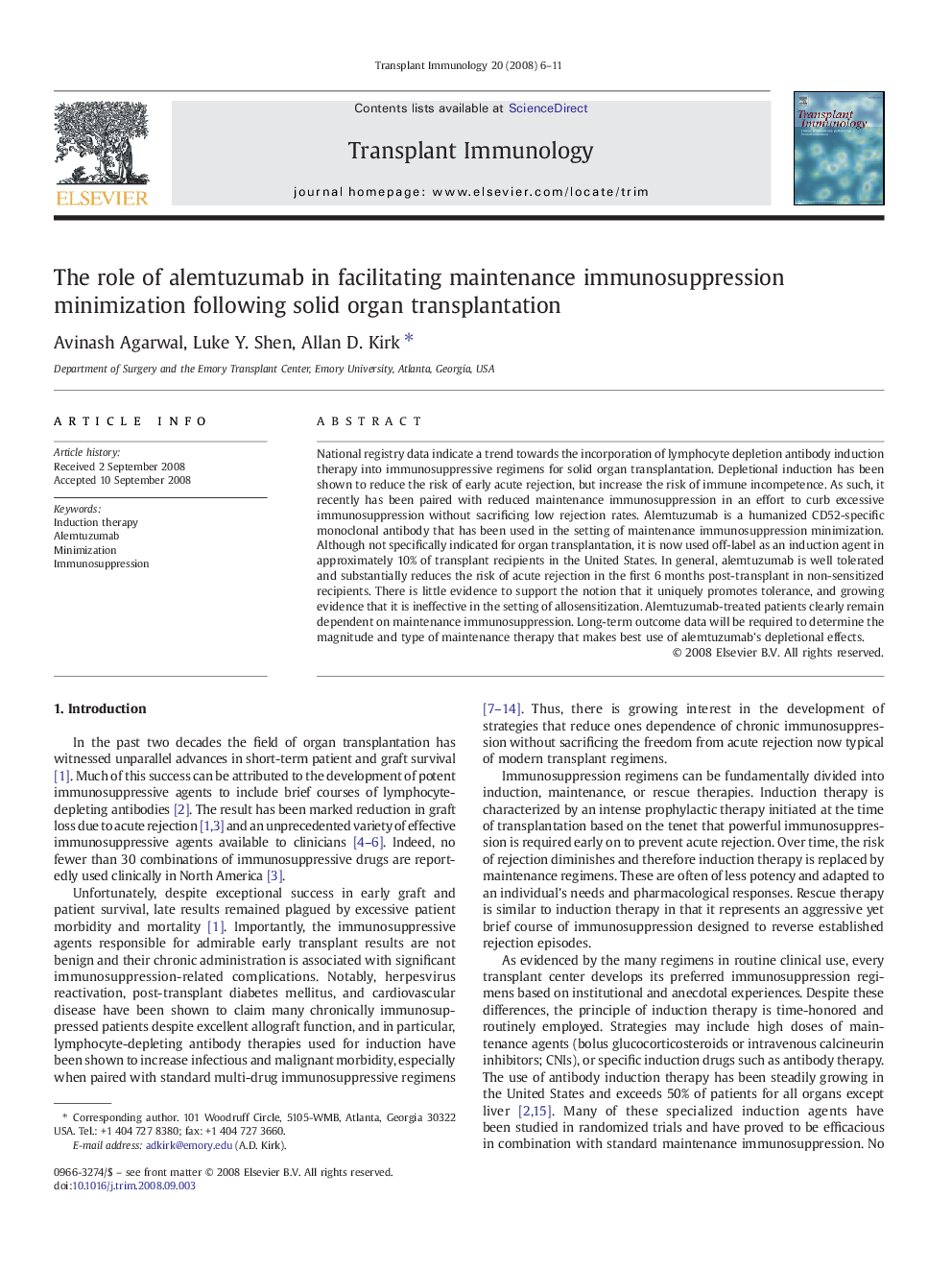| Article ID | Journal | Published Year | Pages | File Type |
|---|---|---|---|---|
| 3392420 | Transplant Immunology | 2008 | 6 Pages |
National registry data indicate a trend towards the incorporation of lymphocyte depletion antibody induction therapy into immunosuppressive regimens for solid organ transplantation. Depletional induction has been shown to reduce the risk of early acute rejection, but increase the risk of immune incompetence. As such, it recently has been paired with reduced maintenance immunosuppression in an effort to curb excessive immunosuppression without sacrificing low rejection rates. Alemtuzumab is a humanized CD52-specific monoclonal antibody that has been used in the setting of maintenance immunosuppression minimization. Although not specifically indicated for organ transplantation, it is now used off-label as an induction agent in approximately 10% of transplant recipients in the United States. In general, alemtuzumab is well tolerated and substantially reduces the risk of acute rejection in the first 6 months post-transplant in non-sensitized recipients. There is little evidence to support the notion that it uniquely promotes tolerance, and growing evidence that it is ineffective in the setting of allosensitization. Alemtuzumab-treated patients clearly remain dependent on maintenance immunosuppression. Long-term outcome data will be required to determine the magnitude and type of maintenance therapy that makes best use of alemtuzumab's depletional effects.
